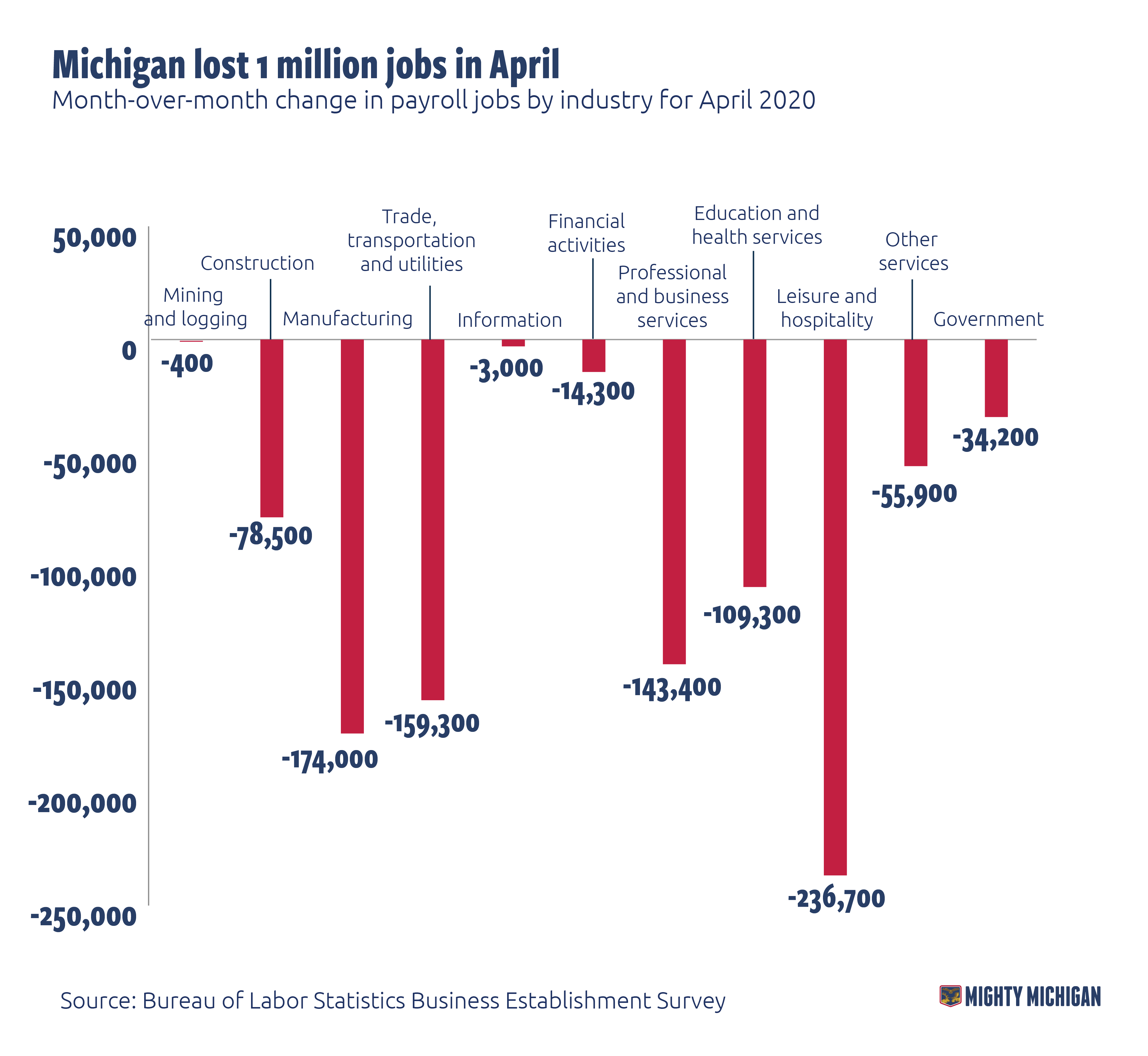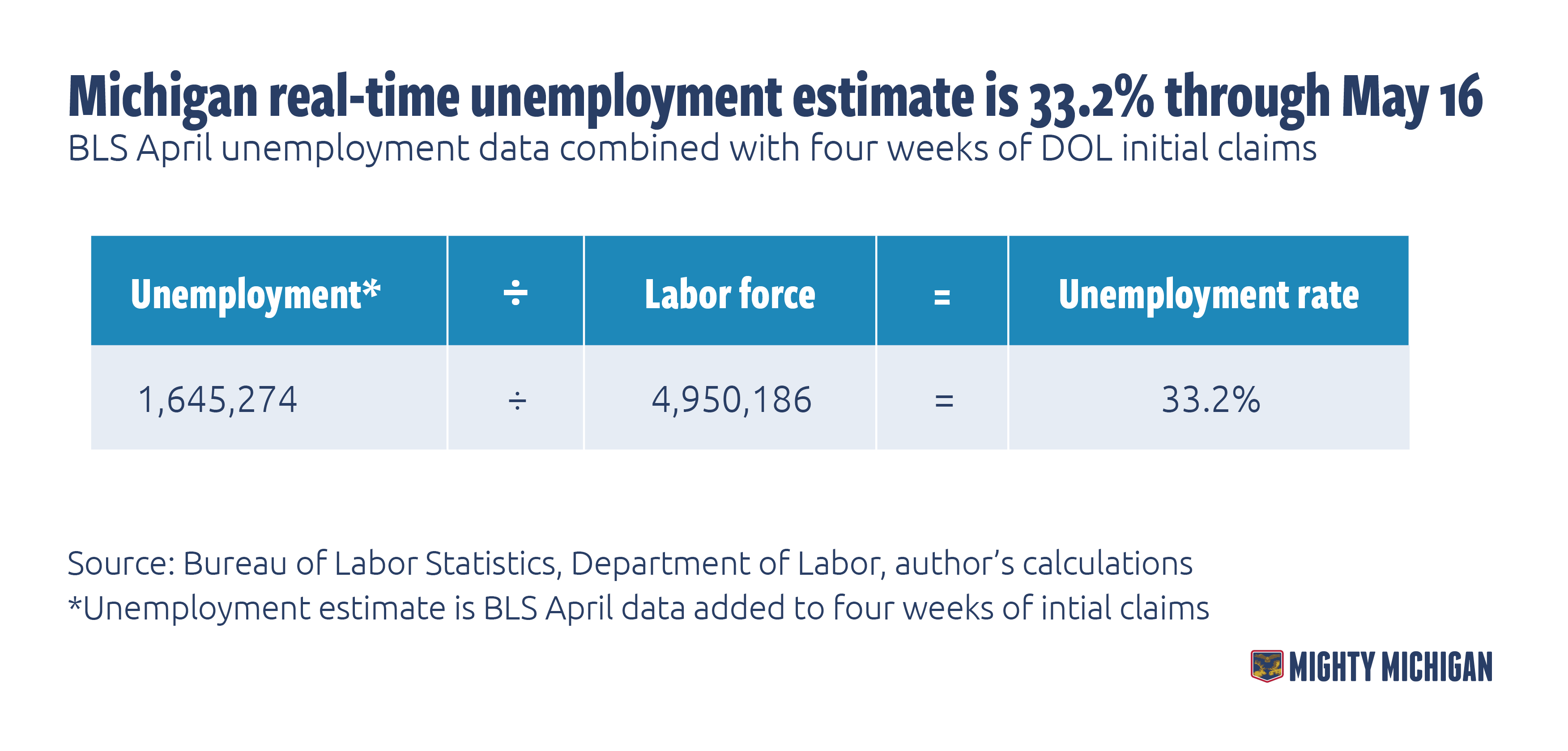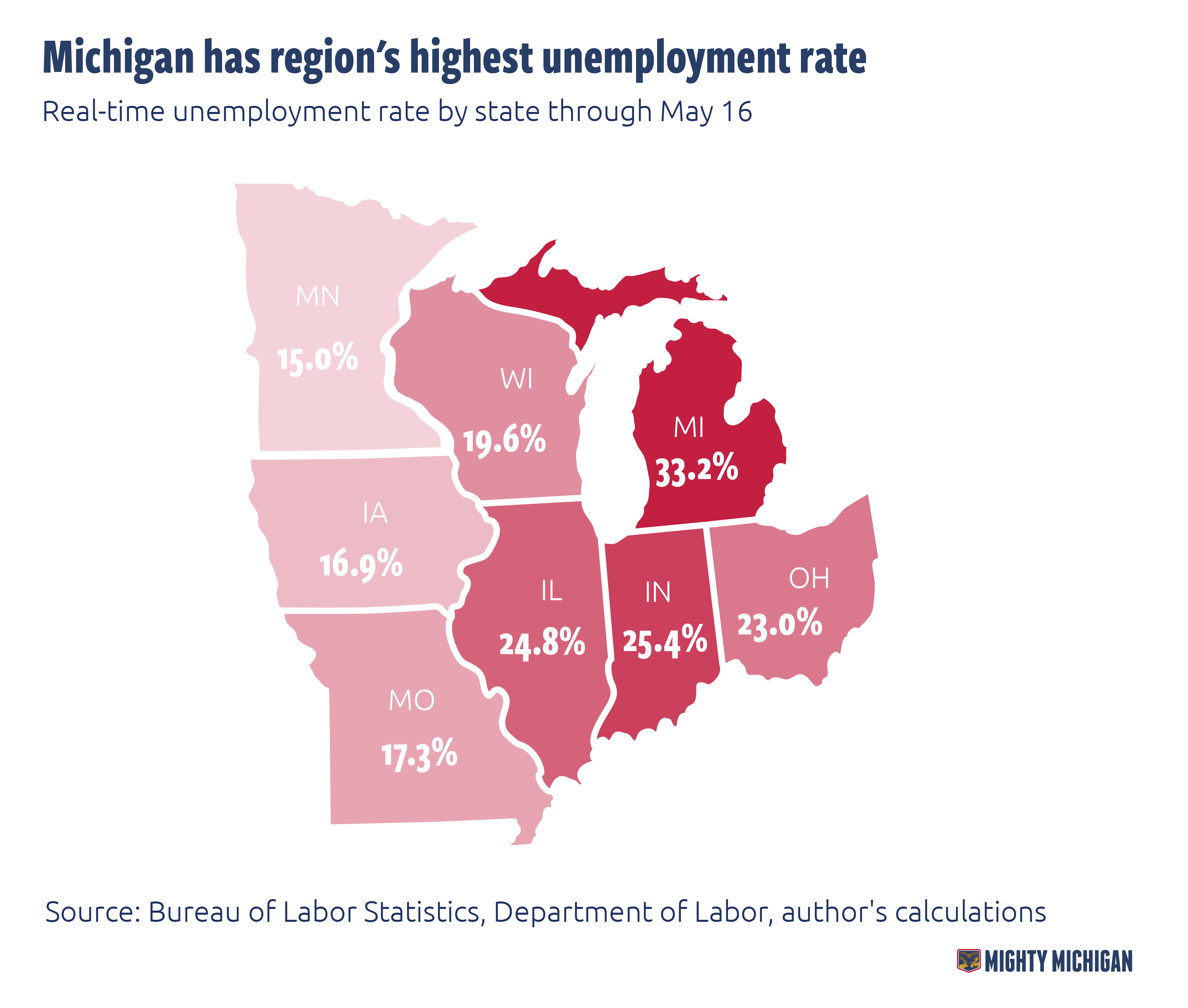Michigan lost 1 million jobs in April, unemployment rate now 33%
With heavy job losses in hospitality, manufacturing and construction, Michiganders are experiencing the worst economic pain in the region.
The Wolverine State lost a stunning 1 million jobs in April, according to a report from the Bureau of Labor Statistics, including nearly 60% of all Michigan jobs in the leisure and hospitality industry.
The BLS report puts Michigan’s April unemployment rate at 22.7%, behind only Nevada’s 28.2%. However, the Wolverine State’s real-time employment rate spikes to 33.2% after factoring in more recent jobless claims. Michigan’s real-time unemployment rate, baselined with the new BLS data, is the highest in the region and fourth-highest in the US.
Michigan policymakers have grappled with when and how and to reopen the state’s economy. The BLS report makes clear that a safe, broad re-opening of Michigan’s economy is urgent for the prosperity of Michigan families and for the state’s fiscal health. Michigan policymakers must then prioritize a package of pro-growth fiscal and regulatory measures to ensure as rapid a recovery once the economy reopens.
April 2020 vs March 2020: U.S. labor force collapses
The Bureau of Labor Statistics revised Michigan’s March jobs loss to -38,700 jobs, the worst month Michigan has seen since the Great Recession. However, that loss was dwarfed in comparison to Michigan businesses shedding nearly 1 in 4 of all jobs in April for a total loss of 1 million jobs.
The graphic below shows Michigan’s job losses by sector for both March and April. Michigan’s leisure and hospitality industry lost 57% of all its jobs in one month, while construction lost 44% of its jobs and manufacturing lost 28% of its jobs.

Michigan has the nation’s 4th highest real-time jobless rate
The BLS report puts Michigan’s unemployment rate at 22.7% through April 18. The BLS calculation does not include Michigan’s recent 340,000 workforce dropouts as unemployed, even though they effectively are jobless. Furthermore, the BLS estimate is current through April 18, while initial unemployment claims have been filed through May 16.
The chart below shows Michigan’s real-time unemployment rate, which factors in workforce dropouts and initial unemployment claims that have been filed in the last month.

Michigan’s real-time unemployment rate is significantly higher than in surrounding states. Only Indiana and Illinois are within 10 percentage points of Michigan, while the Buckeye State’s real-time jobless rate is a full 10 points lower than Michigan’s rate.

In fact, only Nevada (41.9%), Hawaii (36.2%) and Georgia (34.5%) have higher jobless rates than Michigan.
Michigan desperately needs pro-growth reforms
Michigan lawmakers should prioritize helping workers get back on their jobs.
Federal CARES Act funds can be used to replenish the state’s unemployment insurance fund, which would prevent any unemployment tax hikes upon business payrolls. In addition, Michigan should also allow businesses to take net operating loss (NOL) carrybacks for two years, and take accelerated loss carryforwards. Finally, Michigan should allow for full expensing of capital investments by permanently adopting the expensing provisions enacted in section 168(k) of the Internal Revenue Code. Full expensing will incentivize businesses to invest in Michigan, and it will help those who invest in Michigan to preserve near-term cash liquidity.
Occupational licensing reform would help Michiganders get back to work when the pandemic is over. There are 750,000 Michiganders who currently need a government license to work. Loosening up licensing requirements would make it easier for more people to get to work when the recession is over. Furthermore, licenses from other states should be recognized in Michigan.
Local government permitting requirements should be cut, and home-based businesses should be broadly legalized and protected. Michigan cities should consider Phoenix’s 24-hour city model to deregulate permitting and approval processes and thereby better foster start-ups.
Michigan’s unemployed workers desperately need economic growth. Pro-growth fiscal and regulatory reforms are the best way for policymakers to deliver.
